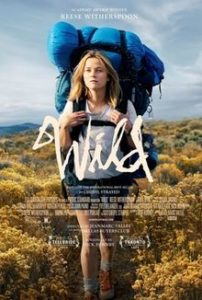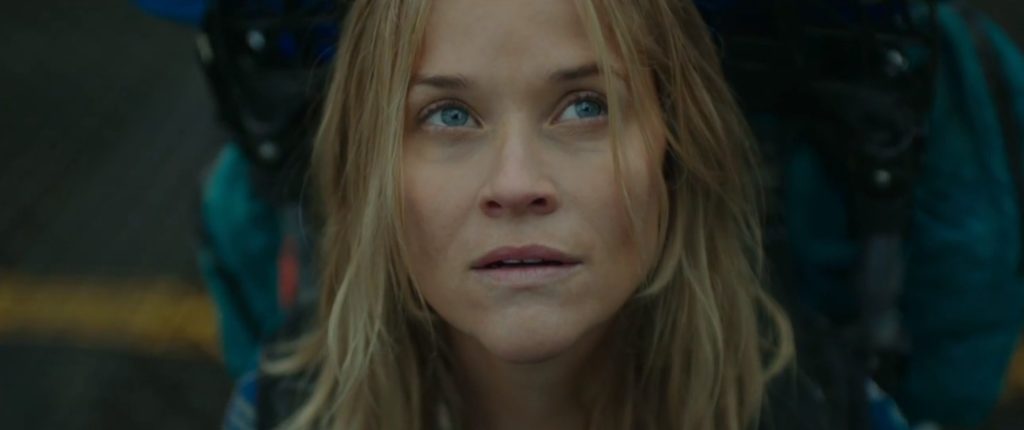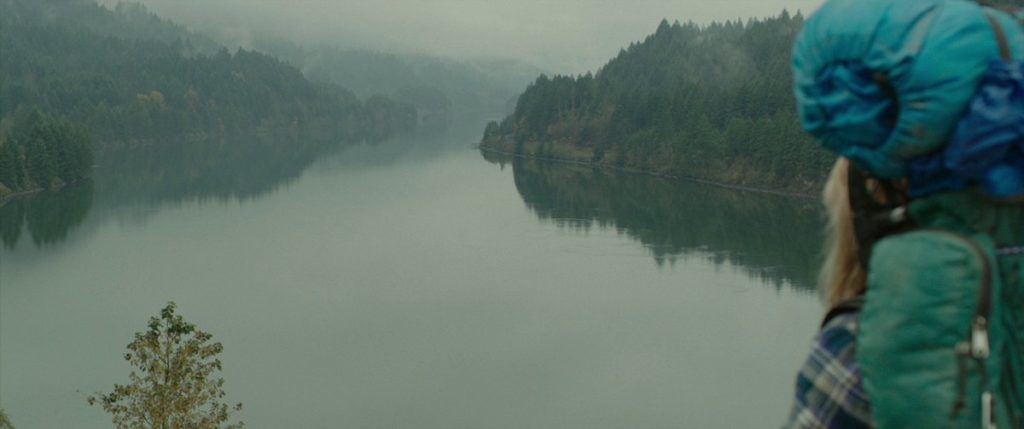A Film That Shows That Even the Lost Can Truly Be Found
Director: JEAN-MARC VALLÉE/2014
 I came with dirty hands, I came with blinded eyes.
I came with dirty hands, I came with blinded eyes.
Tongue-tied, I could barely speak the truth about my tall lies.
They sold me on some pleasure, till the pleasure it sold me into something that looked and smelled a whole lot like slavery.
We all need new beginnings, the first steps make you better
Maybe you’re just a prayer away from getting your s–t together
The song “Flowers” from singer/songwriter Bill Mallonee hits right at what is the emotional center of the new film Wild, which is the follow-up effort from the director of Dallas Buyer’s Club, Jean-Marc Vallée. Based on Cheryl Strayed’s memoir “Wild: From Lost to Found on the Pacific Crest Trail”, the film is truly about the lost becoming found.
Reese Witherspoon plays Cheryl Strayed in what may be her strongest performance to date, surpassing her portrayal of June Carter from the film Walk the Line. Cheryl Strayed is a name that Cheryl chose for herself following her divorce from her first husband Paul (played in the film by Thomas Sadoski-John Wick). It is also a name that Cheryl believed would follow her for her entire life as it summed up perfectly why her marriage to Paul fell apart.

When we begin the film, Chery is ripping off a toenail while hiking on the Pacific Crest Trail, yelling into the sky. Her hands are dirty, her flesh is torn from the wear and tear of her hike, and her tongue is parched. We know not where she is coming from or where she is going, but simply that she is on a journey, and that journey is hell.
Nick Hornby (About a Boy, High Fidelity) writes a screenplay that functions much like the journey that Cheryl is on. When one begins a journey such as the one Cheryl is on, an 1,100 mile trek from Mexico to Canada on the Pacific Crest Trail, you are focused on the task at hand. Cheryl is focused on her bloody feet and the pain she is experiencing. As the journey continues, isolation sets in and you are confronted with who you truly are. Thoughts swirl, memories resurface, and the temptation to walk away is always an option that is crouched and waiting with baited breath, nipping at every step down the trail. As such, Wild begins with a very focused moment of pain on the trail and then ebbs and flows into flashbacks, memories, and misdeeds from Cheryl’s life that show us the journey she has been on before setting foot on the trail.

On the outside, Cheryl is a beautiful and intelligent girl with a loving husband. On the inside, she is broken from the pain that comes with significant loss. While some seek to numb their pain through work, staying busy, and other such diversions, Cheryl drowns herself in meaningless sexual encounters, booze, and drugs. If Dallas Buyer’s Club was Jean-Marc Vallée’s male look at inner brokenness, death, and redemption, then Wild is the female side of the equation.
This is a film that isn’t afraid to juxtapose the contrasting realities of a woman treating casual sex like a stereotypical man (Witherspoon delivers this sentiment coldly and truthfully in the film) would without emotion, but at the same time that she is acting on her sexual urges to numb her pain, she also has a heightened sensitivity and vulnerability of male predators who seek to use her equally as an object to satisfy their pain. The men in her life are either predators or victims. She even lustfully takes a second look at a man on the trail who is bathing in the river. This is usually what men in film do. This is a woman who, like the song above says, has bought into the idea of pleasure as a numbing agent only to find that it has led to shackles.
Poignet moments from her childhood with her mom, played tenderly by Laura Dern (The Fault in Our Stars, Jurassic Park), weave in and out of the narrative reminding her of the ideals her mom put into her. Ideals that she has fallen way short of, through her destructive actions in the past. This journey on the PCT is not some trendy publicity stunt as much as it is a journey to rediscover who she truly is. At one point in the film, she says she is enduring it to reemerge as the woman her mother raised her to be.

Like Cheryl, the trail itself is a misleading character. The cinematography of Yves Bélanger shows us the inherent beauty of the landscape, from the California desert to the mountainous and wooded areas of the Pacific Northwest. But as its protagonist shows us, beauty on the outside doesn’t always show us what is on the inside. The trail itself is a slave to the conditions around it, punishing all who seek to make its journey. From dry desert winds, to treacherous snowfalls, the topography of the terrain’s beauty hides the dark underbelly of the journey forward.
The film shows that as in life, we must find a way to push forward.
To adapt.
To endure.
To overcome.
The adversity we face reveals our true character. And like Cheryl, we can look at our past mistakes and face the temptation to quit. No one would blame us if we did. Or, we can look to push forward. Like a flower in hard earth that still pushes through the hardest pavement to bloom in the most unusual of places, so we too can find our hearts softening with the hope that new beginnings can come bursting through the cracks of our own lives. Cheryl Strayed’s real life journey began with one lost soul looking to rediscover herself. This film, like her, has been found to be quite a hidden treasure that is a testament of the intrepid nature we all possess to reclaim our lives in the midst of whatever spiral we have found ourselves in. Like Flowers, our lives can bloom in the midst of the most unlikely of places. Every journey begins with a first step. And first steps can make you better.
“Flowers growing out of the desert, flowers out of parched ground.
Flowers coming right up through the cracks of the pavement in your old town.
Flowering’s not a science, it’s more like a fine art.
Flowers coming right up through the cracks of our broke up little hearts.
We all need new beginnings, the first steps make you better,
Maybe you’re just a prayer away from getting your s—t together”


